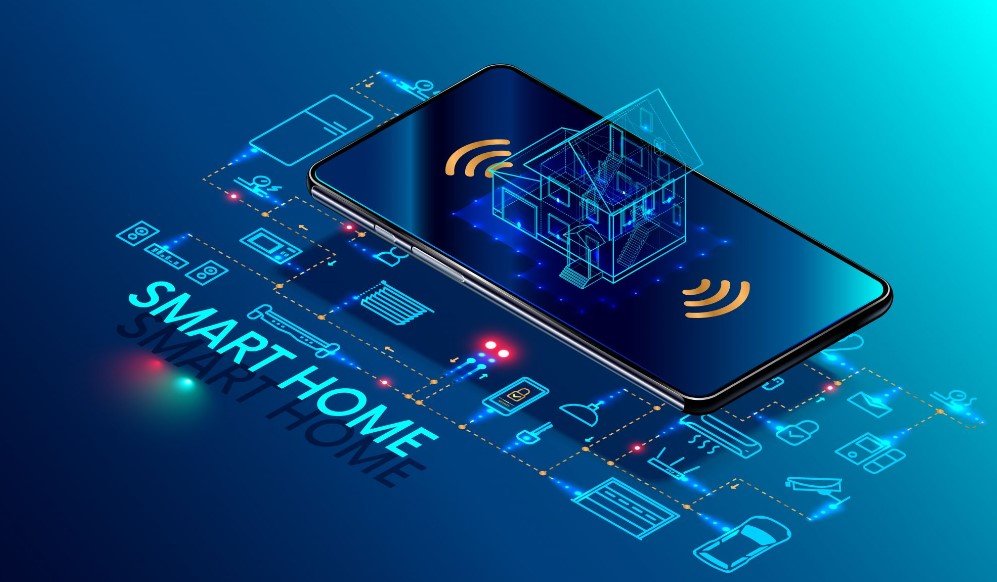As technology continues to evolve at a rapid pace, the way we interact with our homes is undergoing a significant transformation. Home automation offers a pathway to enhance comfort, convenience, and efficiency in our daily lives. By integrating smart devices and systems, homeowners can manage various aspects of their environment with ease, leading to not only an enriched living experience but also the conservation of energy and resources. The very essence of home automation lies in its ability to streamline tasks, reduce manual efforts, and elevate the quality of life, making it a practical investment for today’s homeowners.
What is Home Automation?
Home automation refers to the technological process of controlling various home features and appliances through smart devices or automated systems. This can encompass a wide range of functions, from adjusting lighting and temperature to managing security systems and entertainment centres. At its core, home automation aims to enhance user experience by providing ease of access and control over home environments.
The Benefits of Home Automation
1. Enhanced Convenience
One of the most appealing aspects of home automation is the convenience it offers. Smart devices can be programmed to perform specific tasks on a schedule or activated remotely, allowing homeowners to control things like security cameras, lights, and thermostats from their smartphones or tablets. Imagine arriving home after a long day and having your lighting adjust to your preferred settings automatically. This level of control streamlines everyday routines and reduces the hassle associated with manual adjustments.
2. Improved Energy Efficiency
Energy management is another significant advantage of adopting home automation solutions. By utilizing smart thermostats and lighting systems, homeowners can monitor and adjust their energy consumption in real time. For example, smart thermostats can adjust your schedule, adjusting heating or cooling only when necessary, thereby reducing energy waste. Additionally, automated lighting systems can detect occupancy and adjust based on the time of day, contributing to lower utility bills and a reduced carbon footprint.
3. Enhanced Security
Home automation also plays a crucial role in bolstering home security. Smart locks, security cameras, and alarm systems can be integrated into a single automated network. This allows homeowners to monitor their property remotely, receive alerts in the event of suspicious activity, and access their homes with keyless entry systems. The peace of mind that comes from knowing your home is secure, even when you’re not there, is an invaluable benefit of home automation.
Popular Home Automation Solutions
Smart Lighting
Smart lighting systems enable homeowners to control their lighting remotely via mobile applications or schedules. They can adjust the brightness or color of lights to suit various moods and set up automated routines for when they’re away from home to simulate occupancy, thereby deterring potential intruders.
Smart Thermostats
Smart thermostats learn users’ habits over time and regulate temperature settings accordingly to optimize comfort and energy savings. Features like remote temperature control and energy usage reports allow homeowners to make informed decisions regarding their heating and cooling systems.
Home Security Systems
Advanced home security systems often include features like motion detectors, video surveillance, and automated alerts. Some systems leverage artificial intelligence to differentiate between usual and suspicious activities, providing added security without inundating homeowners with alerts for every minor occurrence.
Voice Assistants
Integrating voice assistants like Amazon Alexa or Google Assistant into a home automation setup enhances user control. These devices serve as central hubs for managing other smart devices through simple voice commands, allowing for seamless interaction with your home ecosystem.
Challenges to Consider
While home automation offers numerous benefits, homeowners may encounter challenges. One concern is the potential for compatibility issues between different devices and brands, which can affect the overall functionality of a home automation system. Additionally, user privacy is a significant consideration; with increased connectivity comes the need for robust security measures to protect personal data from breaches.
Getting Started with Home Automation
Assess Your Needs
Before diving into the world of home automation, it’s important to assess your specific needs and preferences. Are you primarily interested in improving energy efficiency, enhancing security, or simply seeking convenience? Identifying your goals will guide you in selecting the right devices and systems for your home.
Start Small and Expand
For those new to home automation, starting small with a few devices can provide a gentle introduction. Consider beginning with a smart lighting solution or a single smart thermostat before gradually expanding to include additional features and devices.
Choose Compatible Products
To avoid connectivity issues, always look for devices that are compatible with one another and can be easily integrated into a unified home automation system. Researching reviews and seeking expert recommendations can save time and effort in the long run.
Future of Home Automation
The future of home automation is incredibly promising, with innovations continuously emerging. As technology advances, we can expect even more sophisticated systems that learn user behaviors and adapt to meet specific needs. The integration of artificial intelligence and machine learning will further enhance the capabilities of home automation systems, making them increasingly intuitive and efficient.
In summary, home automation solutions present an opportunity for homeowners to simplify their lives significantly. With the ability to control various aspects of home environments from a single device, enjoy increased convenience, improve energy efficiency, and enhance security, it’s clear why many are investing in this transformative technology. By thoughtfully integrating these systems, we can create not just smarter homes, but happier and more sustainable living spaces. Embracing home automation could very well be the key to a more comfortable and efficient lifestyle. So why wait? Start exploring the possibilities of home automation today!
